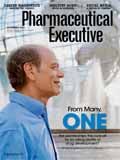The Capital of the Future
Gujarati has become one of India's most industrialized states
It is probably no coincidence that Mahatma Gandhi was Gujarati. This coastal state of Western India, today led by the charismatic yet controversial chief Minister Narendra Modi, is unique in many ways. "The one thing that distinguishes Gujarat from the rest of the country in a very significant way is its people, their mindset, and their approach to work and business ethics. This whole state is all about doing business." asserts Sunil Parekh, former Chairman of the Confederation of Indian Industry–Gujarat.
One of India's most industrialized states, and often nicknamed the SEZ capital, Gujarat's planned development model is more easily comparable to Shenzhen or Singapore. "What generally happens is that states in India continue to develop until they reach the limits of infrastructure, which is then followed by jerky expansion. The Gujarat approach was a very planned and proactive approach to future development," continues Parekh.
Gujarat plays a significant role in the Indian pharma industry. The state is home to many flagship Indian companies such as Torrent, Zydus Group, Claris Lifesciences, and Dishman, and with 3,500 pharmaceutical units based in Gujarat, it today commands 42% of India's pharmaceutical turnover. "I see Gujarat developing as a hub of global generics manufacturing to a much larger extent than what we have seen to date. Clinical research will also be done on a very large scale. Here, the bulk of "biosimilar development" work as well as the manufacturing of complex molecules, both at the API and formulation levels, is expected to take place soon. We also hope to see four to five path-breaking molecules coming from Gujarati industries," predicts Parekh.
Zydus Pankaj Patel, MD, Chairman of the Zydus Group, concurs: "We planned 25 years ago to become a research-driven company by 2020. In 2000, we invested in a basic research facility, and created a center where we could focus on doing novel molecule research and related activities. We have built up a capability where we can do everything from conceptualizing a target, to developing and actually testing it—and we can do all of it in-house." Zydus group reached the $1 billion mark this year, and plans to achieve the $3 billion threshold by 2015.
